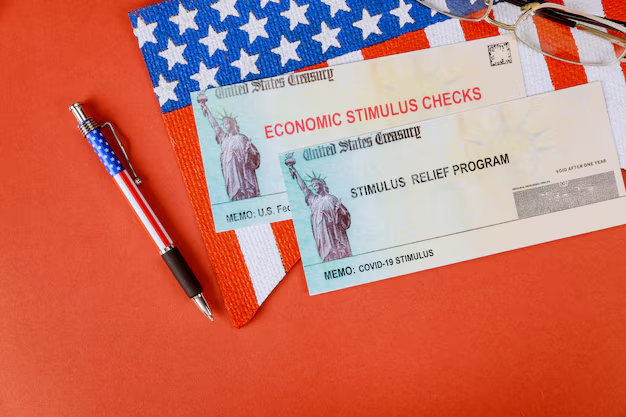How to Request a Welfare Check Anonymously: Your Complete Guide
In today’s fast-paced world, maintaining connections and being aware of the well-being of those around us can be challenging. Occasionally, you might worry about someone’s safety or well-being and consider requesting a welfare check. But can you do this anonymously? Let’s explore this crucial topic from several angles to ensure you understand welfare checks, anonymity, and everything in between.
🚨 What Is a Welfare Check?
A welfare check is a service provided by law enforcement agencies to verify the well-being of individuals who might be at risk. It’s often requested when someone is concerned for a person’s immediate safety or health. This might happen if an individual hasn’t been heard from in an unusually long period or there are signs they might harm themselves or others.
Reasons for Requesting a Welfare Check
- Unusual Silence: The person hasn’t communicated in ways that are typical for them.
- Medical Concerns: They may have a condition that could avail them to risk without help.
- Social Concerns: There are signs of potential harm, such as past threats or concerning communications.
🕵️ Can You Request a Welfare Check Anonymously?
The question of anonymity often arises when considering a welfare check. It’s entirely natural to wonder if you can express your concern without revealing your identity. The option for anonymity can be essential for several reasons, including personal safety, privacy concerns, or fear of reprisal.
Anonymity: General Principles
- Local Policy Variation: The ability to remain anonymous often depends on local laws and the police department’s policies.
- Caller Information Handling: Some agencies safeguard the identity of callers, but they sometimes might need identifying information for communication integrity or if information becomes critical to the call's effectiveness.
- Emphasis on Safety: Authorities typically prioritize the safety of individuals over anonymity. If sharing your identity provides necessary context that aids the process, they could request it.
💡 How to Request a Welfare Check
Steps to Request a Welfare Check
- Determine Validity: Ensure that the situation reasonably warrants a welfare check. Consider whether there's an immediate threat or risk.
- Contact Authorities: Reach out to the appropriate local law enforcement agency. This is usually done by calling their non-emergency line, though urgent matters might justify using emergency services.
- Provide Information: Share as much detail as possible about the individual, including their last known location, general habits, potential risks, and reasons prompting the request.
- State Your Anonymity Preference: Explicitly mention if you wish to remain anonymous and inquire whether that can be accommodated given the circumstances.
Effective Communication Tips
- Be concise and direct in your communication.
- Present factual and clear information to enable the responders to assess the situation properly.
- If anonymity is critical, reiterate it throughout the conversation.
🔍 Legal and Ethical Considerations
Legal Framework
- Privacy Rights: Various jurisdictions have laws regarding privacy, and these intertwine with welfare check protocols.
- Legal Obligations for Disclosure: In situations of self-harm or violence risk, some information might be necessary for authorities to disclose during interventions.
Ethical Considerations
- Moral Responsibility: Consider the ethical implications of your concern for someone’s safety compared to the preference for remaining anonymous.
- Impact on Individuals: Reflect on how the welfare check could affect relationships and the individual's perception of privacy.
📌 Pros and Cons of Anonymity in Welfare Checks
Advantages
- Protection: Anonymity shields you from possible negative repercussions.
- Encouragement to Report: Knowing anonymity is an option might encourage more individuals to report issues.
Disadvantages
- Reduced Credibility: Anonymous requests could lack credibility, affecting the urgency or nature of the response.
- Information Limitations: Authorities might have less context, weakening the risk assessment process.
🤔 Common Myths About Welfare Checks
Myth #1: Welfare Checks Are Invasive
Welfare checks are primarily well-intentioned and focused on safety rather than invasion of privacy.
Myth #2: Only Family Can Request Welfare Checks
While family members are common requesters, others can do it considering legitimate concerns.
Myth #3: Welfare Checks Will Automatically Lead to Arrests
These checks aim to secure the individual’s safety, not to incarcerate them unless a criminal situation exists.
🛠️ Practical Tips for Successfully Requesting a Welfare Check Anonymously
- Know Your Rights: Before making a request, learn more about local policies and legal aspects related to welfare checks.
- Prepare Information: Gather as much relevant information as possible about the individual in question. This could include recent interactions, habits, or observed risks.
- Practice Professional Communication: Approach the call in a straightforward yet considerate manner, ensuring clarity without undue alarmism.
🗒️ Quick Summary: Welfare Check Anonymity
🔹 Can you remain anonymous? It often depends on local policies, but privacy is generally respected where possible.
🔹 Prepare information like the individual’s last known location and habits.
🔹 Contact the right agency using a non-emergency line unless urgency dictates otherwise.
🔹 State your anonymity preference clearly when requesting the check.
Closing Thought: Balancing Concerns and Actions
Welfare checks are a pivotal safety tool in society, providing essential support and intervention when needed. Balancing concerns for anonymity with the need to address potential risks can lead to a positive outcome for those involved. Whether you choose to include your identity or remain anonymous, your proactive decision to reach out in such situations stands as a testament to community awareness and responsibility.

Related Topics
- Are Illegal Immigrants Eligible For Welfare
- Can Illegal Aliens Get Welfare
- Can Illegal Immigrants Get On Welfare
- Can Illegal Immigrants Get Welfare
- Can Illegal Immigrants Get Welfare In California
- Can Illegal Immigrants Qualify For Welfare
- Can Illegals Get Welfare
- Can Police Force Entry For a Welfare Check
- Can Undocumented Immigrants Get Welfare
- Can You Refuse a Welfare Check
